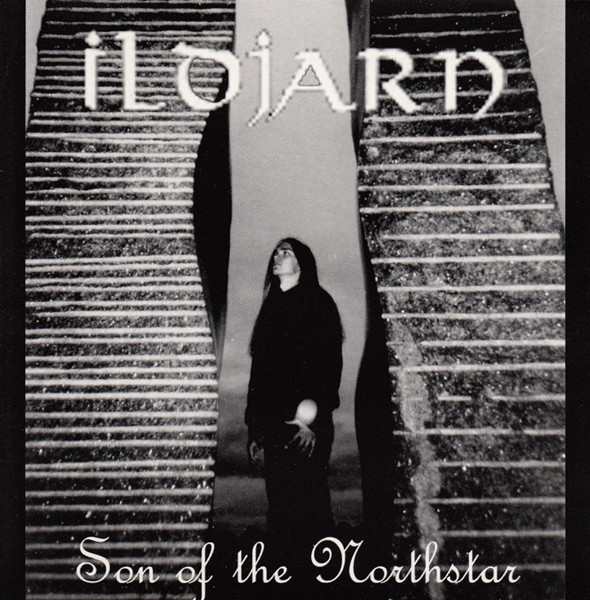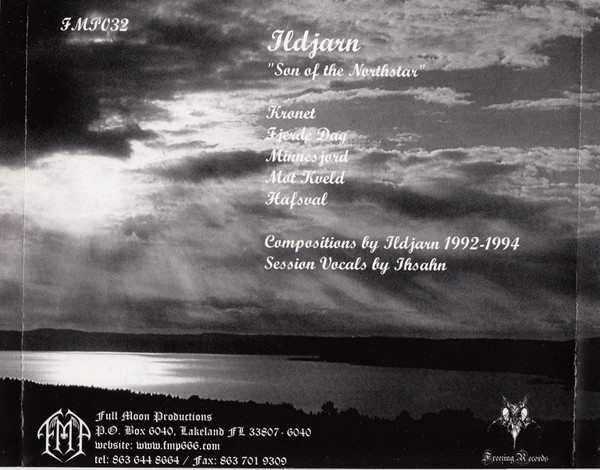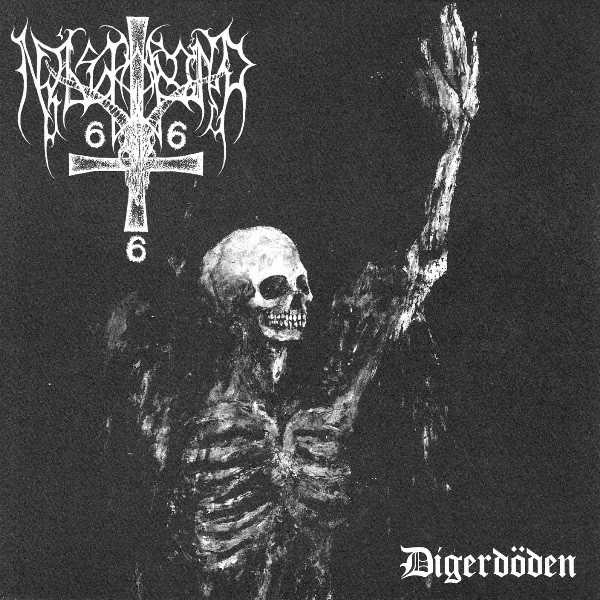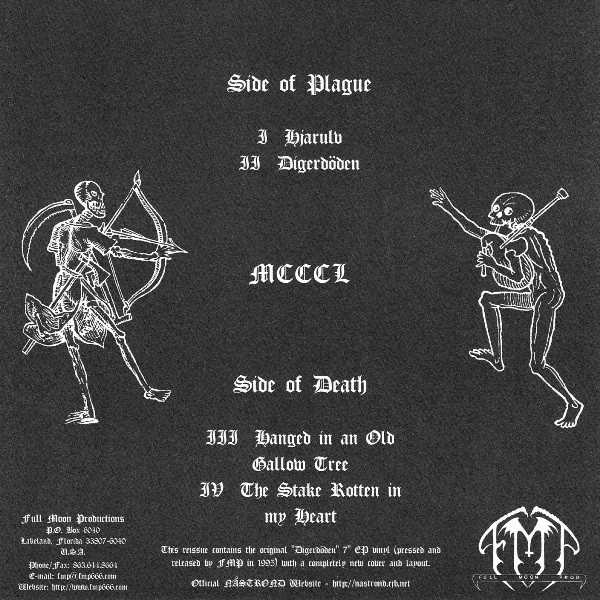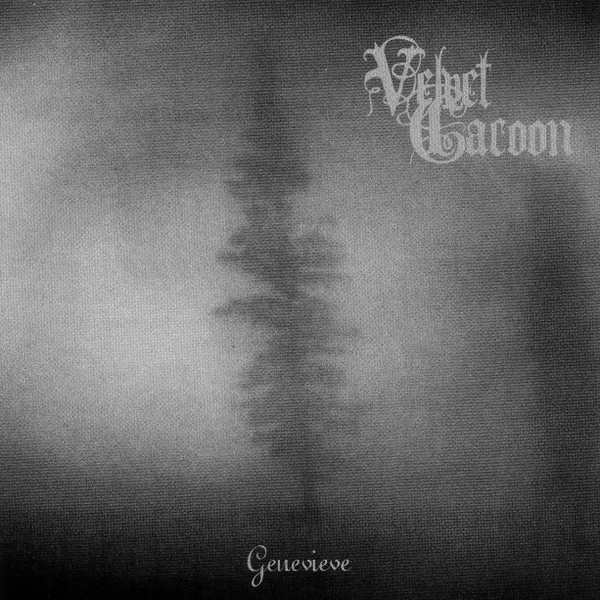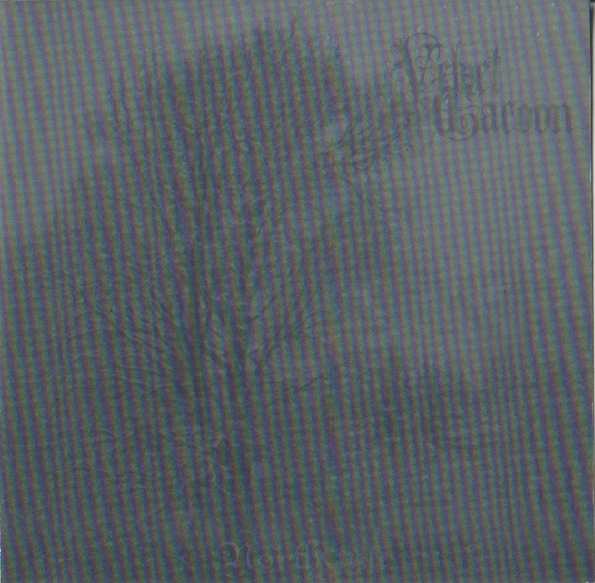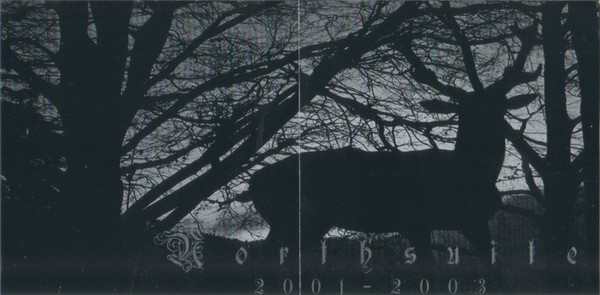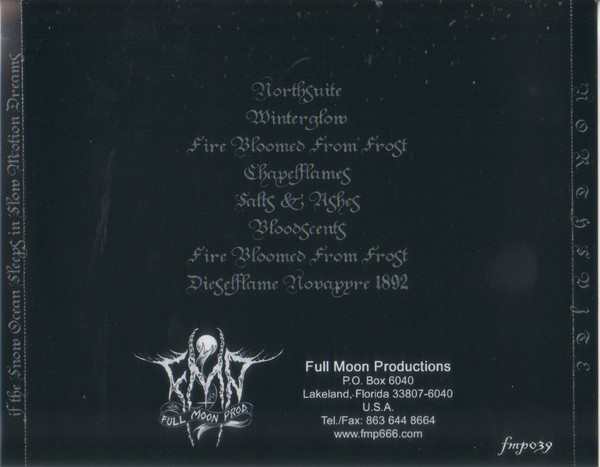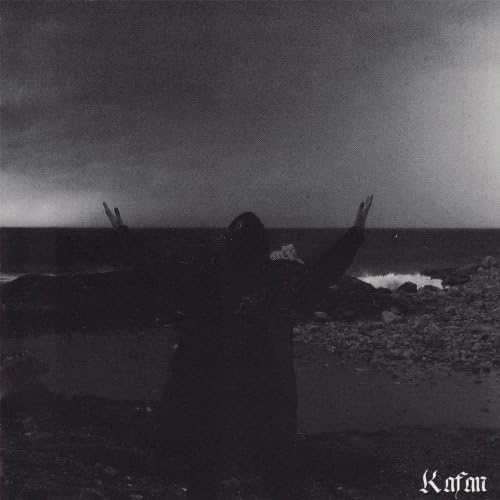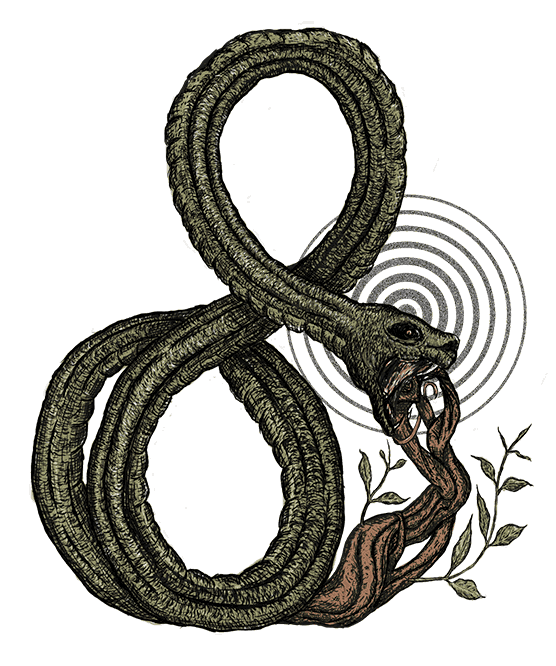Full Moon Productions VIII
2025-09-17
by Niklas Göransson
After a decade at the heart of American black metal, Full Moon Productions faced its harshest winter. Yet from this bleakest of seasons emerged Velvet Cacoon, whose Genevieve became the label’s most notorious and best-selling release.
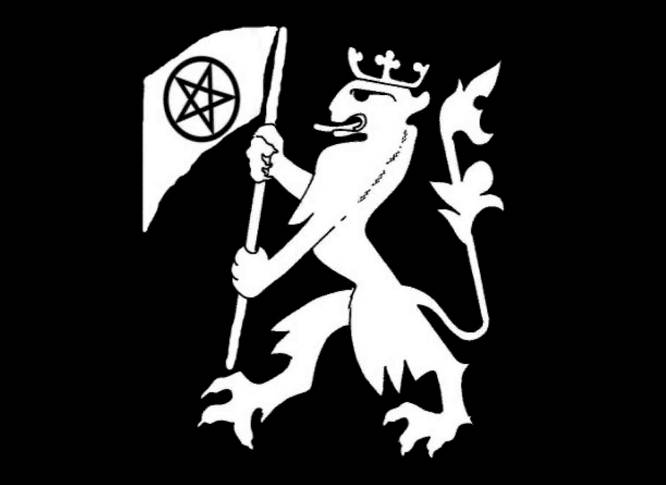
JON JAMSHID: At the turn of the millennium, black metal had gained real momentum; our mail-order peaked and the label moved tonnes of stock. Thanks to Dutch East India, F.M.P.’s main distributor, we sold into more than a thousand independent record stores across the United States.
By the early 2000s, Full Moon Productions had made waves with CONQUEROR’s “War.Cult.Supremacy” – often cited as the birth of ‘war metal’ – while tightening ties to the rising US scene through bands like BLACK WITCHERY and HEMLOCK.
In an interview with Ablaze Magazine, Jon said, ‘Everything was going great until September 11, 2001.’
JON: 9/11 was the biggest blow F.M.P. ever took, and we never recovered. What people don’t realise is how much happened behind the scenes. A year later, fewer than ten of those thousand record stores remained. The rest – mostly mom-and-pop shops – had folded.
In the immediate aftermath, the US economy slid into a short, sharp recession. Independent record shops were already struggling against Best Buy, Walmart, Napster, and online piracy; 9/11 accelerated the decline. Spending on niche imports dried up, discretionary retail tanked, and major distributors – dependent on thousands of tiny accounts – watched in horror as their customer base evaporated.
JON: Dutch East India went under, and F.M.P. lost over 10,000 CDs and LPs we’d sent them. So, we saw our retail support vanish as the entire fucking distribution chain collapsed almost overnight – and then came the anthrax scare. A couple of isolated mail incidents, and suddenly you had nationwide hysteria.
In October 2001, letters laced with anthrax were sent to media outlets and government offices, killing five and sickening others.
JON: Longtime F.M.P. customers were calling us: ‘Please stop sending your catalogues – we don’t want to get anthrax!’ Can you believe that shit? And others got scared straight, you know? Like, ‘I don’t want anything to do with Satanism anymore.’ It was a strange time.
Are we talking complete cessation of revenue or more like a steep downturn?
JON: Oh, weekly revenue dropped to nearly nothing. We could barely stay afloat. Around that time, my employee Jonathan Lee left because I couldn’t afford to keep paying him. Maybe a year later, I hired someone else – but F.M.P. was already a sinking ship by then.
As a self-employed business owner, I can only imagine the feeling.
JON: Yeah, it was fucking horrible. I even considered filing for bankruptcy – we just couldn’t keep up with the bills. Honestly, that was the beginning of the end. Survival became a week-to-week question. Every few days, I’d ask, ‘Can I keep this going?’ Most signs pointed to no.
Back in 1995, Freezing Records – the same label F.M.P. collaborated with on the NÅSTROND seven-inch – had planned an ILDJARN EP titled “Son of the Northstar”, but it never materialised.
JON: The guy behind Freezing Records, Jason, always struggled financially, which is why I ended up releasing the NÅSTROND EP myself – I just added his label name to the packaging since he was supposed to be part of it. He’d also planned an ILDJARN release on vinyl but, again, lacked the funds.
Eventually, in 2002, Jason – also the driving force behind LORD OF DEPRESSION – concluded that the label wouldn’t get off the ground. Rather than let the material go to waste, he asked F.M.P. to handle it.
JON: I told him I wouldn’t do vinyl – I’d press it as a mini-CD, limited to 1,000 copies. It sold well, but the artist wasn’t happy. The original deal was with Freezing Records, not me, so I don’t think Ildjarn appreciated it being passed along without his input. He asked me to stop pressing it, so I did.
A few months later, in January 2003, another old Freezing Records collaboration resurfaced – a modest reissue of the 166 unsleeved originals of NÅSTROND’s “Digerdöden”.
JON: My new employee J.B. asked, ‘What do you want to do with these boxed-up seven-inches?’ I told him, ‘Reach out to the band – let’s get a new cover made.’ I gave him NÅSTROND’s contact details, and he got in touch. They provided fresh artwork, and we printed proper high-quality sleeves.
The cover features another outstanding piece by NÅSTROND’s guitarist and vocalist, Karl NE, who also made the artwork for BLACK FUNERAL’s “Vampyr – Throne of the Beast”.
JON: Overall, J.B. did a great job. The updated version looked magnificent next to the original. The first pressing, by comparison, was really rough – unpolished and kind of dirty-looking. That’s what you get with an eight-year gap between editions.
Despite dwindling sales, from the outside, Full Moon Productions still appeared to stand at the forefront of US black metal. When Jon’s early competitor Necropolis Records wound down in 2003, it had spent its final years dedicated to the thrash resurgence.
JON: Full Moon Productions became the central US hub for black metal; anyone in the scene crossed paths with me at some point. The F.M.P. forum was unquestionably a huge part of that. People were constantly debating, arguing, and pushing their bands or labels – it became a chaotic but vital space.
Full Moon Productions was among the first underground labels with secure online ordering, and its thriving forum – in all its lawless glory – served as the centre for black metal discourse.
JON: The level of activity was insane <laughs>. Constant bedlam. You’d think it’d be manageable, but F.M.P. was never more than two people. Now imagine running a label while moderating one of the biggest message boards out there. Half the time, I didn’t even know what the fuck was going on.
Jon could at least count on relentless thread warfare and promises of violence flying back and forth at all hours.
JON: People would call me, ‘Did you read what someone just posted?’ I’d be clueless, then go, ‘Holy shit.’ Total overload. I didn’t have the time – or the interest – to argue online. Never my thing.
At its peak, how much of your day did the forum consume?
JON: I’d check in regularly, keep an eye on it, maybe step in when things got out of hand – but J.B. was far more immersed. Any time he went back home to his apartment, he’d be on the forum; the next day, he’d fill me in on whatever mayhem went down overnight.
J.B. appears to have been a resourceful young man – was he a local hire?
JON: Oh yeah. Lakeland, Florida, didn’t have much of a metal scene. Not many people into extreme stuff – at least none I knew. J.B. was one of the few who followed F.M.P., and I eventually hired him.
Part of J.B.’s talent lay in scouting new, interesting bands for the roster.
JON: We still received hundreds of demos each month – both for Petrified, even though it was technically dead, and from bands hoping to sign with F.M.P. J.B. handled the packages and logged everything. He’d open the mail and set aside the demos so we could listen later.
NEGATIVE PLANE recalled sending their 2004 promo to Full Moon and being dismissed with something like: ‘What the hell is this? You guys need to figure out if you’re playing death or black metal.’
JON: <laughs> That definitely sounds like me. Look, F.M.P. wasn’t F.M.P. by accident – there was always ideology and attitude. You can’t be some fucking wimp; you’ve got to believe in what you’re doing. I’ve always been blunt, straight to the point. Even now, I don’t tiptoe.
By 2004, because of the ongoing financial troubles, F.M.P.’s release pace had slowed considerably. The previous year had seen only two full-lengths – FLUISTERWOUD’s “Langs galg en rad” and PEST’s “Ära”. Around this time, F.M.P. received an advance of VELVET CACOON’s “Genevieve: December Star Embassy Vol. II”.
JON: J.B. listened and heard something offbeat. When I checked it out, the music didn’t exactly strike me as black metal – but there was a lot of buzz surrounding the band, so I thought it might be worth putting out. Once we did, the reaction was fascinating.
Two years earlier, VELVET CACOON’s digital-only debut, “Dextronaut”, had stirred some forum chatter. With its parodic song titles and ludicrous aesthetics, the project appeared to be an intentional joke. By contrast, FMP036 – “Genevieve: December Star Embassy Vol. II”, released in March 2004 – was presented as a lofty but straight-faced black metal statement.
JON: The whole thing was incredibly confusing. You’ve got to remember, by the time VELVET CACOON surfaced, black metal had shifted. It wasn’t about letters going back and forth anymore, with everything moving at a glacial pace. Events happened in real time – right now, this second. I kept hearing all sorts of shit.
Besides fabricated backstories and outrageous interviews, VELVET CACOON are perhaps best known for plagiarising other musicians. The album closer, “Bete Noir”, is the first known example – a pitched-down theft from German ambient musician Mathias Grassow.
JON: With that much noise, you can’t tell what’s legit. I couldn’t figure out if it was all bullshit or actually happening. ‘Is this band even real? Are they frauds? Is the music stolen or original?’ Every day brought a new rumour about VELVET CACOON.
Sounds tedious.
JON: Yeah, why did I have to get dragged into this? Overwhelming, frustrating, infuriating. But any publicity is still publicity – and in this case, the chaos worked. The record did really well; probably the most successful release F.M.P. ever had.
Really? Better than HADES and MYSTICUM?
JON: Absolutely – “Genevieve…” outsold everything Full Moon ever released. It also sparked more discussion than any other title – not just backlash like WILLOW WISP, but tonnes of praise too. People either hated VELVET CACOON or loved it. No middle ground.
Following the success of “Genevieve…”, F.M.P. reissued VELVET CACOON’s “Northsuite” in October 2005. Originally self-released by the band a few months earlier, it was promoted as a compilation of two older demos – neither of which existed – and even credited a slew of phantom contributors.
JON: Yeah, strange band. Here’s something I’ve only told a handful of people: VELVET CACOON didn’t want royalties. They straight-up told me, ‘F.M.P. releases the albums, and everything the label puts out belongs to you.’ All they asked for was fewer than five copies of each – nothing more.
Did “Northsuite” have sales comparable to “Genevieve”?
JON: No, nowhere close. “Genevieve…” has always been in a league of its own. Another thing that set VELVET CACOON apart: with most F.M.P. titles, we covered studio budgets. These guys delivered everything mixed, mastered, and laid out – for free. From a label perspective, the risk was near zero.
In November 2005, a month after “Northsuite”, Full Moon Productions issued “Rex Ex Ordine Throni” – a split between Colorado projects NIGHTBRINGER and TEMPLE OF NOT.
In a 2025 NIGHTBRINGER feature, Naas Alcameth and Nox Corvus spoke about what it meant to be acknowledged by ‘the first true American black metal label’. Alcameth even insisted on using the old-school MYSTICUM-style F.M.P. logo – the one seen on albums they worshipped as teenagers.
JON: Believe it or not, I preferred the original F.M.P. logo myself. Not trying to be an asshole – over the years, fans sent in different designs and I appreciated them all, but the original meant the most to me. So, the fact that NIGHTBRINGER wanted that version? Fucking killer. Exactly what I would’ve chosen.
By that point – just over a decade into F.M.P. – did it occur to you that your label had shaped the formative years of a new generation of metalheads?
JON: No. When you’re the one doing it, it doesn’t cross your mind. I focused on promoting true black metal, I never stopped to consider what it meant to others – the impact, how it might reach someone, change their life, or shape them.
Did you discover NIGHTBRINGER yourself?
JON: No, that was all J.B. I’d kind of lost control of F.M.P.; I couldn’t keep up. Music, the label, everything – it became overwhelming because real life was hitting me hard. I trusted J.B.’s instincts, his taste, and how deep he was into black metal. I technically still ran things, but he played a huge role.
The following year, F.M.P. signed SERPENTINAM, a fellow Colorado black metal band led by former NIGHTBRINGER guitarist James Alabas.
JON: Yeah – James sent a couple of demo tracks, and we talked about him going into the studio to record an album. Then, out of nowhere, he called and said the project was dead. SERPENTINAM no longer existed, and he vanished. No idea where the guy went.
He eventually ended up taking his own life.
JON: Oh, really? That sucks. I might’ve given away the SERPENTINAM tapes. I didn’t throw them out or anything, but F.M.P. fans would sometimes come by, and I’d hand out boxes of old demos. I probably gave them to someone without realising. I doubt those recordings will ever see the light of day now.
If nothing else, this era of Full Moon Productions held its share of surprises. FMP038, April 2006, was a reissue of a 2003 demo by Lebanese black metal act KAFAN.
JON: J.B. played me the demo, and we ended up listening to it non-stop for days. I liked the music, but here’s the weird part: I knew absolutely nothing about the band or where they were from. I told him, ‘If you really believe in this, we’ll go for it.’ We released the CD as a small, limited run – not even 1,000 copies – and it actually sold pretty well.
2006 brought major upheaval for the label, as Full Moon Productions relocated from Florida to Colorado.
JON: This might sound odd, but I needed to get out of Florida. I felt stuck – caught in a loop. Whatever I tried, things circled back to the same place. I told myself, ‘I need a complete reset.’ Moving to Colorado felt like the radical change I was after.
log in to keep reading
The second half of this article is reserved for subscribers of the Bardo Methodology online archive. To keep reading, sign up or log in below.




